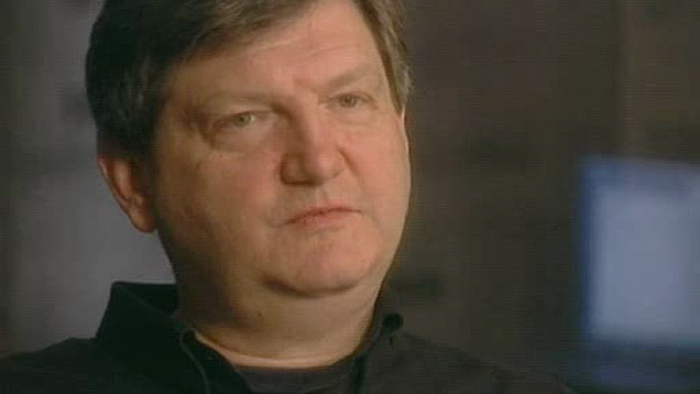A New Precedent for Reporter’s Privilege?

October 14, 2011
Share
Pulitzer Prize-winning reporter James Risen will not be asked to reveal confidential sources at the upcoming trial of a former CIA officer accused of leaking classified information — a decision that could set a precedent for other reporters ordered by the government to reveal their confidential sources.
The Justice Department said that it will not appeal the decision by U.S. District Court Judge Leonie Brinkema, effectively quashing the subpoena that would have forced Risen to reveal his sources or face jail. Risen and his lawyers described the judge’s decision as “a victory.”
“I believe this is the first time that a judge recognized a reporter’s privilege in an indictment or a subpoena before a federal criminal case,” Risen told FRONTLINE.
Lucy Dalglish, executive director of The Reporters Committee for Freedom of the Press, said she could not confirm Risen’s assertion since “nobody keeps track of these subpoenas,” but said that Judge Brinkema’s decision will likely set a precedent for future cases.
“This will have value in the future,” Dalglish said. “Now, when a reporter and his or her lawyer shows up in court … you can say, ‘Here’s what Judge Brinkema did,’ and that will be enormously helpful.”
Risen is scheduled to testify at the trial of Jeffrey Sterling, an ex-CIA officer accused of leaking information published in Risen’s book State of War about a botched covert program that was designed to sabotage Iran’s nuclear program. Sterling’s trial is scheduled to begin Monday.
Judge Brinkema said on Wednesday that Risen would be asked to describe his narrative style “in general terms.” He must testify about whether portions of his book were direct quotations from individual sources, or if they came from a classified document referenced elsewhere in the text. However, the judge said she would not allow prosecutors to question Risen about each individual quote, because that could reveal his sources.
In recent years, Risen has been at the center of a debate over whether the government should force journalists to reveal anonymous sources. He has fought three subpoenas since 2007. In an affidavit earlier this year, he said that naming sources “creates the inevitable appearance that journalists either are or can be readily converted into an investigative arm of the government.”
“Persons who would otherwise be willing to speak to me would surely refuse to do so if they perceived me to be not a journalist who keeps his word when he promises confidentiality but one who would break it in the interest of government prosecutors,” he wrote in the affidavit.
But Jesse H. Choper, a professor of Public Law at the University of California, Berkeley’s law school, notes that the First Amendment does not protect reporters from being required to testify or naming sources.
“Freedom of the press does not afford reporters a privilege to refuse to answer relevant and material questions,” Choper said, citing the Supreme Court’s landmark 1972 Branzburg v. Hayes decision.
Most states either have a law or a series of legal precedents that provide reporters with a privilege allowing them to protect their confidential sources. At the federal level, however, there is no shield law. In several high-profile cases during the last decade — most notably in the case of New York Times reporter Judith Miller — judges have jailed reporters for contempt of court when refusing to testify.
The decision comes amidst aggressive efforts by the Obama administration to “plug leaks.” Since President Obama took office in 2008, the federal government has filed criminal charges against five individuals accused of leaking classified information — more than any previous administration, according to The New York Times.
The move has prompted reporters and advocates — including Risen — to criticize the administration for the “chilling effect” the prosecutions have had on national security reporting.
“They are really, really maintaining the pressure,” said Dalglish, calling the administrations efforts to pursue leakers “creepy.”
Risen released State of War: The Secret History of the CIA and the Bush Administration in 2006, shortly after the Times published a story he wrote detailing the NSA’s warrantless wiretaps. The Times story won Risen a Pulitzer Prize. In the book, Risen described the wiretap program in more depth, but it was a chapter about the CIA and Iran’s nuclear program that has kept him in and out of court.
In the chapter, Risen relies on anonymous sources to outline how the CIA may have inadvertently aided Iran in weaponizing its nuclear program. In February 2000, Risen writes, the agency paid a defector to give Iranian agents nuclear blueprints containing a glaring error. According to Risen’s sources, the error was so obvious that Iranian scientists would have easily corrected it, and had complete and accurate nuclear blueprints at their disposal. The CIA may have tried to dupe other rogue nuclear states, as well, Risen wrote.
Wednesday’s ruling could spell the end to Risen’s four-year battle against the Bush and Obama administrations to protect his sources.
Bonus: Watch a video of Risen discussing the prosecutions of reporters and others involved in the leaking and publishing of national security information with FRONTLINE Correspondent and UC Berkeley School of Journalism Professor Lowell Bergman.
Latest Documentaries
Explore
Policies
Teacher Center
Funding for FRONTLINE is provided through the support of PBS viewers and by the Corporation for Public Broadcasting, with major support from Ford Foundation. Additional funding is provided the Abrams Foundation, Park Foundation, John D. and Catherine T. MacArthur Foundation, Heising-Simons Foundation, and the FRONTLINE Trust, with major support from Jon and Jo Ann Hagler on behalf of the Jon L. Hagler Foundation, and additional support from Koo and Patricia Yuen. FRONTLINE is a registered trademark of WGBH Educational Foundation. Web Site Copyright ©1995-2025 WGBH Educational Foundation. PBS is a 501(c)(3) not-for-profit organization.



















